As everything and everyone has a predecessor, so does the Internet and Fiber Internet. Before it, we had ARPANET, which led to the first message exchange between two computers in 1969. Its sole purpose was to transfer government information from one computer to another. ARPANET was successful though it was only available to limited personnel. To combat this more networks were developed, and we had the Internet rise in the New Year of 1983. To date, we celebrate International Internet day on 29th October to recognize this breakthrough.
With that, let’s jump into what the Internet looks like currently and what it will be like tomorrow. In the world of science, stagnation is a big no. Every invention and idea is constantly improving, even as you read this. From wired connections to portable modems and now wireless amenities, the world of the Internet has made massive strides. Just when you think there is no more to change, geniuses come up to tell us there is more in store.

Many have heard about fiber optic Internet and that it is a groundbreaking improvement in the industry. That is true but vague, so is it better than what we already have? And how? The main difference is that fiber internet optic cables consist of glass or plastic fibers rather than regular cables that contain copper. This difference is what brings about the revolutionary change required in our Internet usage. Despite being only 31% slower than fiber-optic cables, the aspects of copper connections are affected greatly. Copper cables are able to carry signals only about 100 meters. They have higher attenuation or signal loss rates than fiber optic cables. Fiber optic cables lose 3% every 100 meters while copper loses 90%. Fiber optic cables are said to be sturdier and can last up to 50 years, while copper cables will need replacing every 5 years or so. The performance degrades as they age due to corrosion.
Today fiber internet in Tanzania is a reality, let’s look at some of its advantages against radio Internet that has been always the standard.
The speed of both these networks can be compared based on photons versus electrons. Fiber Internet-optic cables run at the speed of light (photons) as compared to radio Internet which runs on the speed of sound (electrons). Fiber-optic Internet speed is 10 Gbps+, which is 100 times faster than the 100 Mbps we have been using. It takes a fraction of the time to get any work done with this speed. For example, the standard time to download a two-hour HD movie at 100 Mbps is 7 minutes and now will take 40 seconds only. Apart from luxury aspects, shopping online and retrieving data will be done within seconds!

Streaming content online without buffering is what we all want. That is what fiber internet optic cables can deliver due to their high capacity and low latency. The cables can pick up multiple signals during peak hours to maintain a constant speed. The best part is since there is no metal involved in these wires, it does not run on electricity. Even during a power outage, you will not lose your Internet connection.
Have you noticed that when you are trying to send an important email or upload a file, suddenly the connection drops or gets stuck? It is a tactic that many Internet providers use to ensure that the Internet connection is active for all users, despite being at its slowest. This will not be the case with fiber optics as it has a large capacity and an overload is very unlikely to occur.
When sending a video on WhatsApp, uploading on Instagram, or even YouTube, it takes a long time to upload the video but a relatively shorter time to download it. That is because Internet providers have set a larger bandwidth to download content, as that is what the majority of people do. With fiber optics, you will take the same time to upload as to download. No more hearing that it took 3 hours to upload and 3 minutes to download.
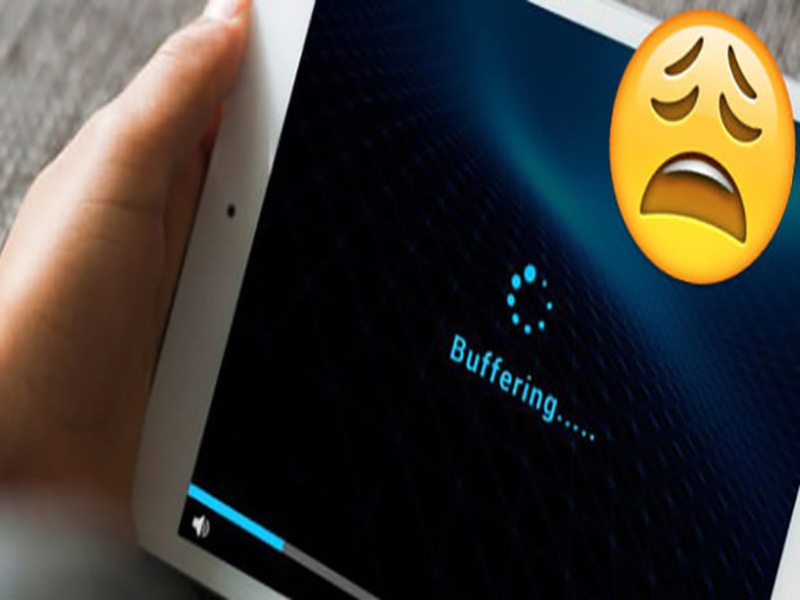
Many people have now got smart TVs allowing them to enjoy apps such as Netflix and YouTube on a bigger screen. With the better 4K displays, current Internet bandwidths cannot support streaming, which tends to distort quality, our company introduces Fiber Internet in Tanzania because it is no difficult task for fiber optics, enabling you to get crisp picture quality when watching your shows.
Fiber internet optics is the best option for online gaming. Despite not using a large bandwidth, any glitch or fluctuation can get you killed in your game. Many games require multiple players, who need to make moves timely in order to enjoy a smooth experience. Make your moves wisely and timely with consistent Internet flow from fiber-optic connections. All Fortnite lovers, keep an eye out to raise the bar in your gaming experience!
In the age of technology, each household has multiple devices that require an Fiber Internet connection. An individual may have up to three devices each to be connected such as a laptop/ PC, phone, and TV. The speed and capacity of fiber optic cables allow multiple devices to stay connected with a constant speed of Internet despite the usage.
With the numerous benefits of advancing technology comes great responsibility as well. Faster Internet will mean getting work done faster. It is necessary in this case to go at your own pace and avoid mental burnout. Saving up a couple of minutes in each task can get us an extra hour or two. Who knew we could add a couple of hours to our day? The added benefit fiber internet optics offers us is the provision to make time for ourselves, and do what we love most sometimes through using the Internet.
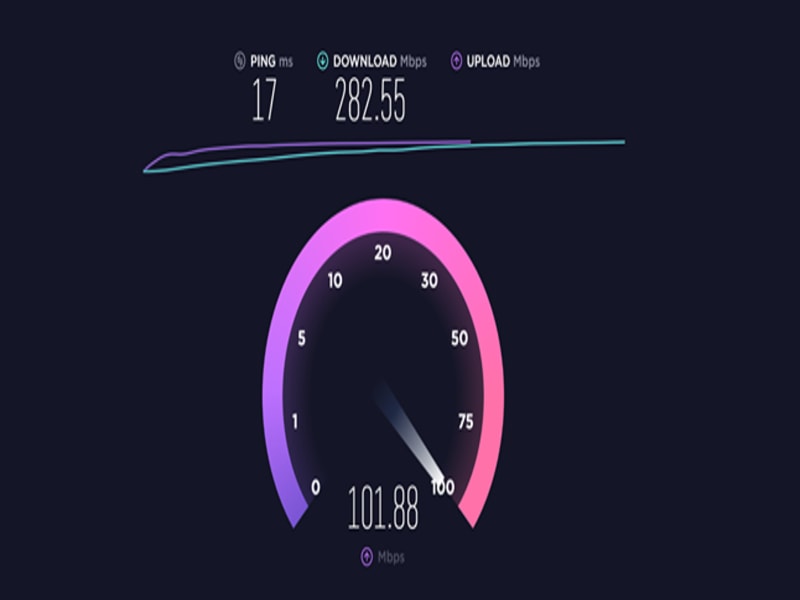
For more information, contact our expert team will gladly assist you and answer any queries you might have about our fiber technology. At Blink, we are here to help you find the best solutions for your home or business.
Every device connected to your network uses data internet plan. In the world of connectivity, it might seem like you constantly need to upgrade your internet package to accommodate all your devices, perhaps you even considered getting the unlimited data internet plan. But do you really need it or are you just not following the right tricks to prevent unnecessary data usage?
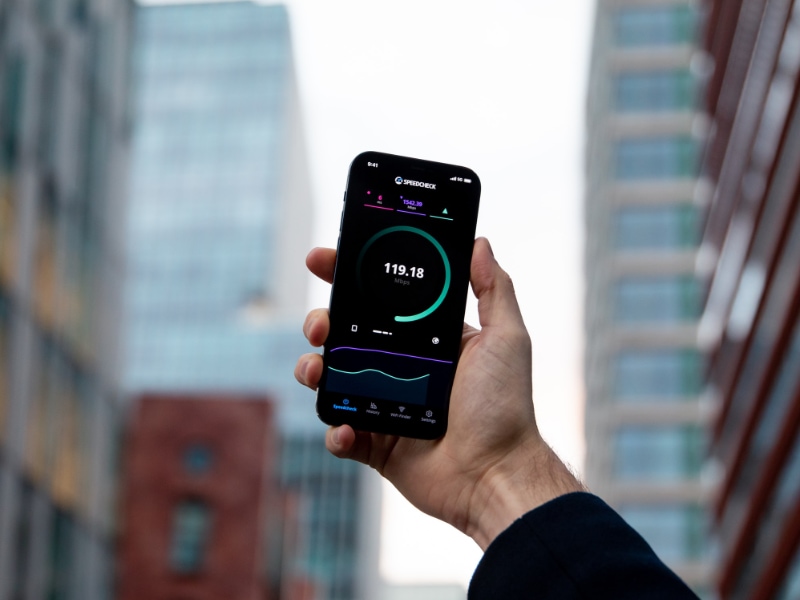
Although you may think your internet plan bundle is only used for your home appliances such as your PC or TV, it is important to recognize that as soon as you or your relatives step into your house, new devices such as smartphones, laptops, and tablets are usually automatically connected.
While smartphones and tablets use considerably fewer data than bigger screen devices, it still adds up to your monthly quota as they are more frequently used for social media, music, games, and entertainment which use a lot of data.
Background data is also a culprit when it comes to unnecessary usage. Some apps still run in the background even after they have been closed. This is usually due to synchronization and updates among other uses. Here’s how you can limit your background data.
You can easily save up on your data bandwidth by closing unnecessary applications or by turning off your devices when not in use. If you are not necessarily into switching off your phone and tablet, then be sure to activate the ‘data saver’ setting on the devices. This option helps cut down on your data usage by preventing apps from using data in the background.
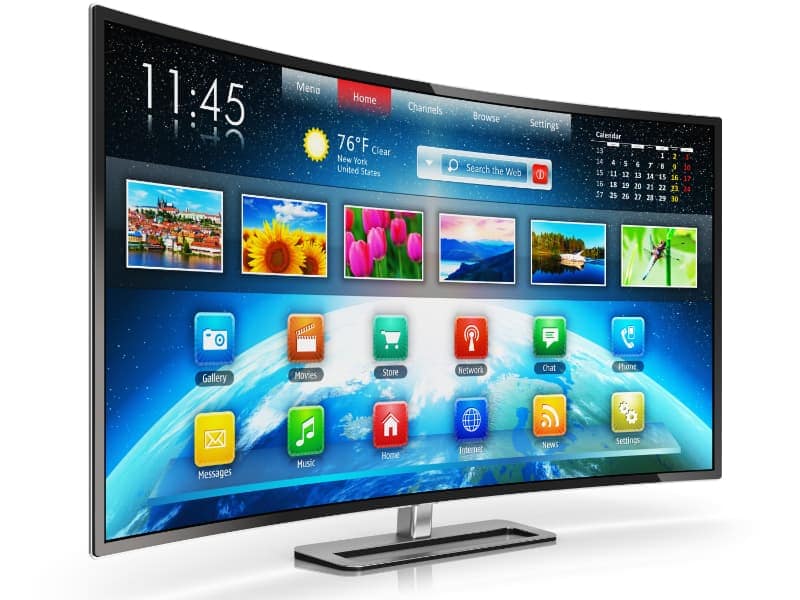
For once, optimal quality does not necessarily mean the highest resolution. While having the best quality to watch the latest action movie is probably the goal if you bought a 4K Smart TV, understand that a regular HD television set does not require a 4K quality video. If you are streaming a video from the your internet plan, then the larger the video size, the greater the data usage.
While most browsing sites such as Netflix allow you to select the resolution of your movie, picking a higher definition than necessary for your device (e.g. 4K for an HDTV) will not necessarily improve your viewing experience as the video will be compressed to fit your monitor. Similarly, streaming a high-quality video from a laptop will not actually make such a big difference in comparison to a regular-definition video due to its small monitor.
However, learning to select the optimal quality settings for your devices while streaming may mean a significant improvement in your data usage.
While scrolling through social media or the web, you will find it difficult to control your data usage when coming across multiple videos which automatically start playing. While this may not seem like much, apps such as Facebook, Instagram, Twitter, and the like display a staggering amount of video content daily which is instantly loaded and played as you scroll. Similarly, websites and news pages often have content playing in the background or at the side to capture the reader’s attention.
One way to overcome this is simply to disable the ‘Auto-play’ option in your application settings. This might defer for every app, but here’s how to do it for the more popular such as Facebook, Instagram, and YouTube. By doing this, you will ensure you are only using data on videos or content that you actually want to see.
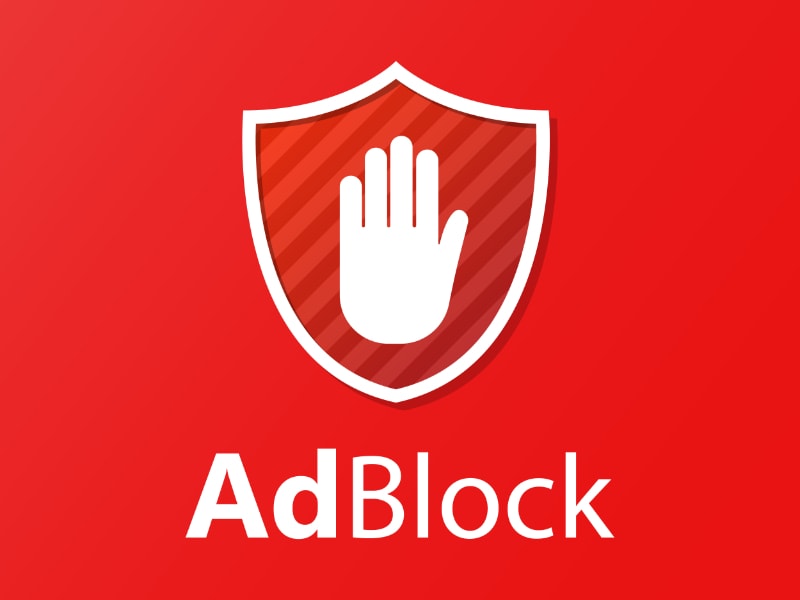
Yes, whether they are interrupting your streaming and games or flashing on the side of the content you are checking out online, most people find ads annoying, but what they may not know is that these short promotional videos and pictures are also part of the reason they always blow the roof off their internet allowances.
Depending on the amount of time you spend online, you will be exposed to huge amounts of advertising attached to your favorite websites, online shopping sites, social media, and games which all add their grain of sand to your data.
Ad-blockers have now become increasingly popular to hold off ads that may be offensive or unpleasant but also to help have better control over data usage. Studies on mobile data usage have attributed up to 48% of monthly data to ads, downloading an ad-blocker software or extension is thus an easy way to save on your internet plan. You could also opt to use Brave Browser, a new entrant in the market that comes with built-in adblocking.
As obvious as it may seem, using proper security for your router is a good way of ensuring your neighbors are not tapping into your data. Yes, it does still happen. If you have suspicions, simply using a strong password may actually make quite a difference in your monthly internet plan usage.
If followed correctly, these few simple tips may make a significant difference in how you spend your internet plan bundle. While it is clear that your data package should realistically reflect your needs, learning how to control your usage to stay in a smaller plan may even help you save a few bucks.
Many Internet Service Providers (ISPs) in Tanzania normally offer their services based on one of 2 criteria; usage amount or bandwidth. Some might split their internet services for Residential vs Commercial users.
It’s easy for people to understand when the internet packages are split based on usage. Once your data package is finished, the service continues at a lower guaranteed speed with reference to the package you have subscribed to. Additionally, we provide an options of topping up your data package at a rate of 2,000 Tzs per GB (Exclusive of Taxes).
What confuses many is understanding bandwidth. Is 1Mbps good enough for your home/office or do you need 10 Mbps? What’s the difference between the two? Which one works best with your internet habits?
We aim to explain bandwidth, what it means and what speed works best for what scenario.
Bandwidth is a technical way of referring to internet package speed. It represents the amount of data that can be uploaded and downloaded in a second.
The general metric used to measure internet speed by most ISPs is Mbps. The higher the Mbps number, the faster your internet is going to be.
Of course, there are other factors that will affect how fast your internet package is going to be such as the number of users, the tasks being performed over the internet (streaming or video conferencing will consume more data than viewing emails and websites), and more.
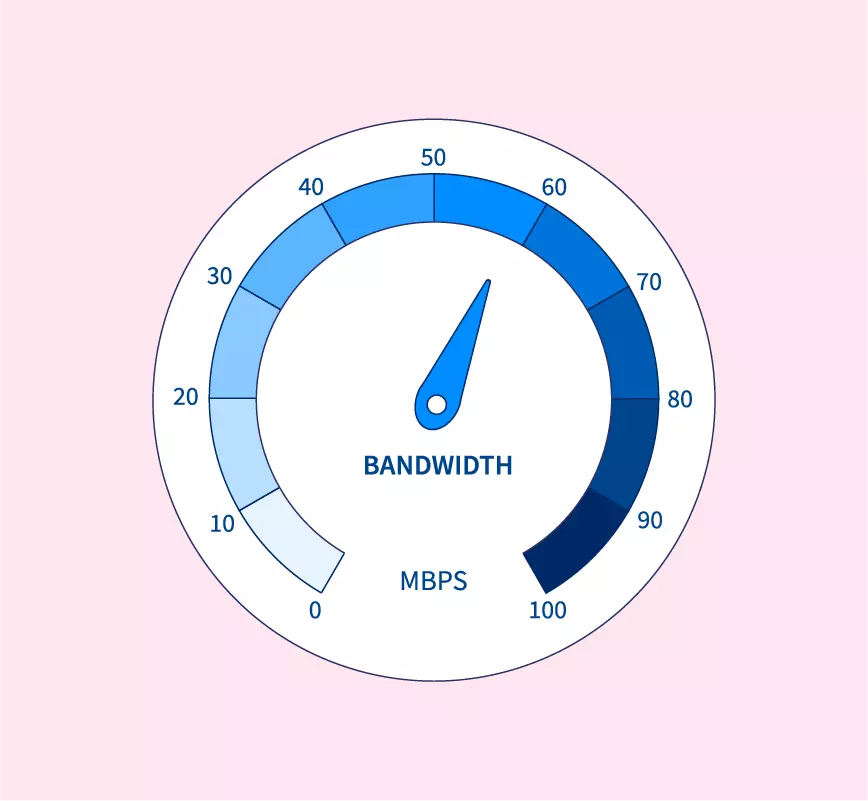
Now that you understand what bandwidth is and how it works, let’s have a look at what internet package works best for you. To make it easier for you, we’re going to use our own internet packages as examples.
We believe this will make your purchase decision easier. The last thing you want is to get an internet package that doesn’t meet your online requirements.

This works best for one to three-person households. This internet package has a 25 GB usage limit and a bandwidth of up to 10 Mbps. This package is suitable for very basic tasks such as email reading and browsing.
This is best suited for residential homes and small businesses with no more than 5 users. This package has a 50 GB usage limit and a bandwidth of up to 10 Mbps. Basic browsing, social media browsing, and standard-quality streaming (480p).
This package may not be appropriate for concurrently heavy internet users, Having said that, it might still work for your home/business. This package is available to small businesses and residential homes with 5 or more occupants.
The usage limit is 100 GB, with a maximum internet speed of 10 Mbps. As long as the internet isn’t used for data-intensive tasks, this package should be sufficient. With this speed, you can do basic web browsing, high-definition (720p) streaming, and email. It can also support your online gaming and video conferencing needs.
The package has a limit of 150 GB and bandwidth of up to 20 Mbps. With this, you can do normal day-to-day tasks like browsing the web and viewing emails, as well as more intensive tasks like video streaming in Full High Definition (1080p), online gaming, and video conferencing. The package’s higher usage limit provides more wiggle room as well.
The premium package includes a usage limit of 250 GB and an internet speed of up to 20 Mbps. This package is more inclined to small to medium-sized businesses. The internet speed in this package allows you to run multiple online gaming streams, download large files, and stream in Ulta High Definition (4K) in addition to the usual web browsing, multiple simultaneous video conference calls, and email viewing.
We may be biased, but 300 GB is a little excessive for residential users. This package may be suitable for more than 10-15 multiple concurrent high-volume internet users. It can also provide internet speeds of up to 20 Mbps. The usage limits allow for data-intensive tasks, and with the internet speed available, you can stream in Ultra High Definition (4K), use multiple video conferencing lines, perform cloud backups, and upload large files without issue, among other things.
Our Blink expert team is always open for a consultation to help you get a package that meets your residential/business needs. Feel free to get in touch with us and we’ll answer any questions that you might have.
The internet has brought with it plenty of benefits, but there are disadvantages involved as well. One of the benefits is the ease of sharing data through the internet and safe online. As more businesses rely on the internet in their daily operations, there is a higher need for data security.
Business data is crucial as well as sensitive. As a business owner, you should take the necessary steps to ensure that your data is safe. It does not matter whether you are a Small to Medium Enterprise or an established business, proactive steps need to be taken to keep your data safe.
Here are some measures you can take to keep your data safe online.

It is important to ensure that everyone in your organization uses a secure password when accessing sites with company data, whether it’s accessing email accounts or shared cloud storage.
A password acts as a door that protects your crucial information online, so you need to make sure that this door is properly secured.
It’s recommended to use a lengthy password that combines lower and uppercase letters as well as numbers and symbols. You get extra security if a different password is used to access different accounts and services associated with the company.
You can also utilize password managers like ‘Lastpass’ to help you generate and remember difficult passwords.
You should use two-factor authentication whenever possible. It provides an extra layer of security as it requires an extra step before logging into your account.
This extra step can be in the form of a verification code that is sent to your smartphone or a PIN sent to another device associated with the account that you are trying to access.
Not all online services offer this extra layer of security, but if you ever find one that does, take advantage of it.
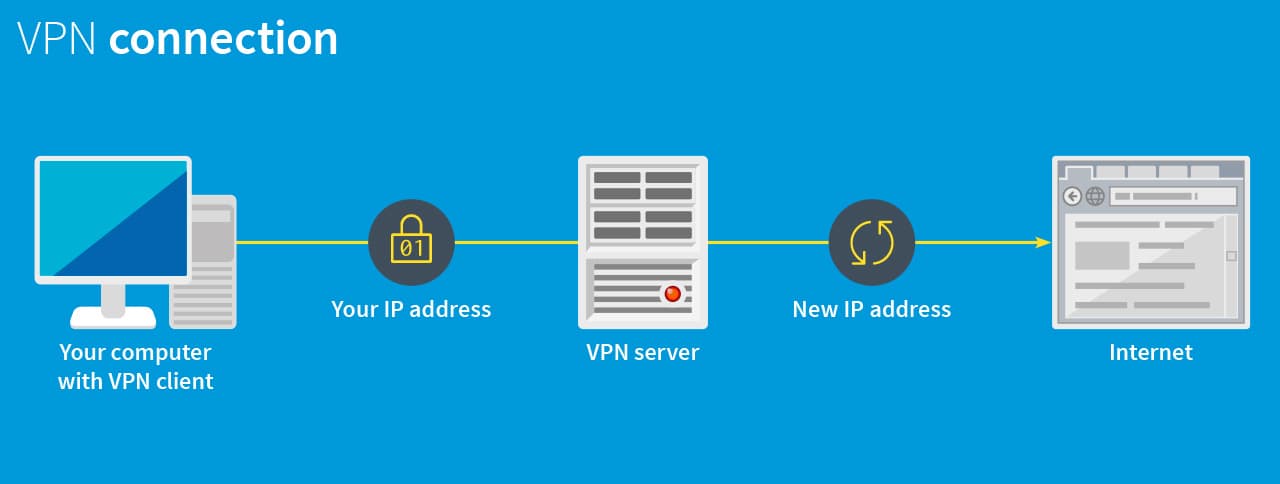
A VPN is not a service that is commonly offered by many Internet Service Providers in Tanzania, but it is an important one when trying to keep your data safe online.
In theory, a VPN works by ensuring that your online data and communications are encrypted. This helps to protect your data from malicious activities such as data spying and taking data hostage.
As an ISP in Tanzania, Blink offers a VPN service among many other provisions. Our VPN builds an encoded tunnel between your device and our servers, thereby encrypting and protecting your data from unwanted users.
You can take an additional step towards data security by ensuring that all devices in your office, from mobile phones to laptops, are encrypted and secured with strong passwords so that your safe online. You also need to make sure that unauthorized visitors are prohibited in your office space.
Have measures in place for employees that are no longer with the company to revoke their access to shared cloud storage files and passwords. Make sure that access to company data is restricted as soon as an employee’s time with the company is up.

Implementing the above steps is well and good, but it will not add any value if your employees are not educated on possible threats that can come as a result of using the internet and not being safe online.
While they may have general knowledge about internet security, new techniques for data attacks are constantly invented. For instance, there has recently been an uptick in phishing attacks.
It is important that training is provided to your employees by the appropriate IT manager or a cybersecurity expert to keep them informed of recent threats to online security and how to remain safe online.
Training can include how to detect signs of security breaches such as phishing emails, what to do or not to do when they detect a possible threat, and reporting suspicious emails to the appropriate departments to name a few.
Implementing the steps above is going to go a long way in making your business data safe online. Our VPN service is top-notch and will ensure your data and communications are safe. Get in touch with us today to learn more about how a VPN can be utilized in your specific business settings.
This guide provides you with in-depth and up-to-date information about broadband and how to identify the best packages and deals as well as the best internet provider in Tanzania.
Today, it’s possible to connect and use the internet in many different ways. There are two key services that can provide you with internet access. These services are a slow dial-up service or a fast broadband connection. Many internet providers in Tanzania today offer broadband guide connections to both homes and offices. When compared with dial-up service, a broadband connection is faster and has several packages which can meet your needs.
Before switching to a new Internet provider in Tanzania, you need to specify what kind of internet user you are. Do you make use of low, medium, or High Internet? This should be taken into consideration if you are installing broadband Internet for a household or Office.
Light users: Are you the kind of user who uses the internet for checking emails, shopping, and paying bills? You should consider using the most economical broadband guide package which will probably be suitable for your basic needs.
Medium Users: Internet users that frequently watch TV, and download loads of music or files but are moderate in their use fall in this category. For instance, corporate offices of up to 5-10 users with web surfing, and working on emails on daily basis. You should consider switching to a high internet package if you exceed your limit consistently.
Heavy Users: People that fall in this category are those who love using the internet to watch TV or stream movies, and download extensive files. Corporate offices of up to 10-20 users with web surfing, and working on emails on daily basis are also included here. Users in this category spend a good deal of time on the internet and need fast and unlimited broadband.

Microwave (radio) Broadband is mostly suitable for internet users who do not want to pay more for basic internet usage. To connect to the internet the user requires a router. Specifically, a router that connects to the internet via the microwave radio which receives signals from the main tower. You can buy the router from your service provider and pay monthly or pay as you go.
With satellite broadband, you get connected to the internet via the use of a satellite. The cost of connection is quite high with this type of broadband.
With that said, it is an effective means of connection for individuals who live in remote areas. The signal is received using a satellite dish instead of cables. Over the years, Its speed and network stability have improved.
Calculating the amount of data you need can be a strenuous task and may not be effective if you are a high internet user. If you have got multiple devices and multiple users, your data usage pattern changes from month to month. We simply estimated some rough figures as a guide.
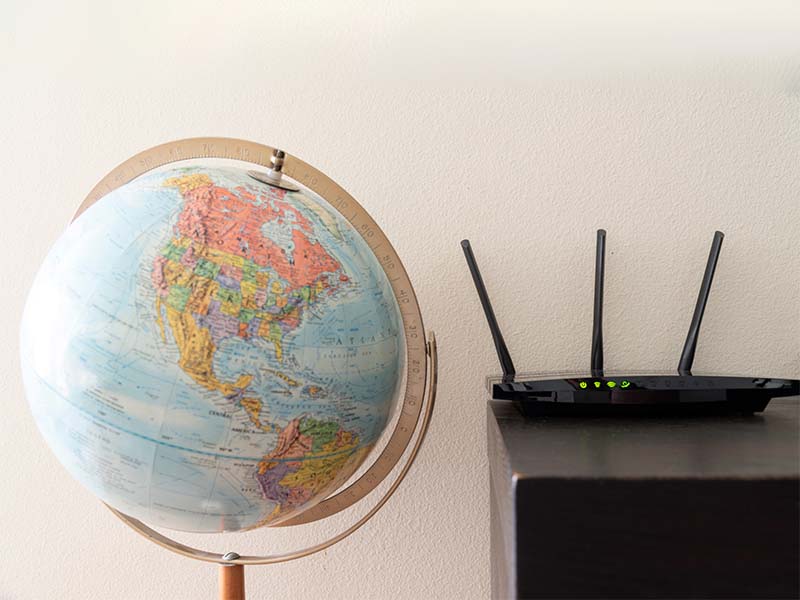
General browsing and email: 10 GB per month with speeds of 2Mbps
Browsing and TV streaming: 30 -80 GB per month with speeds of 3M
General browsing, TV streaming, movies, and huge file downloads: 80 – 180 GB per month with speeds of 6Mbps
Gaming and high-end Internet usage: 10 GB to unlimited.
Is Speed Important when selecting an internet provider in Tanzania?
Internet speed greater than 2 Mbps (which many of the best internet providers in Tanzania can offer) is sufficient for basic and simple online activities. You don’t need a super-fast connection for checking emails, browsing the web, uploading photos to Facebook, and even streaming from Netflix or BBC iPlayer. If you stream live videos on multiple devices or play games online, then you’re going to need a high-speed connection of 8Mbps.
The internet today is a must-have for many people. You need it at work, at home, and everywhere else in between. It’s important to choose the best internet service provider. Your happiness as an internet user rests on that very choice.
There are a couple of things you need to know that will give you insight into the type of Internet Service Provider you should subscribe to. Choosing an Internet Service Provider is not an easy decision. Especially if you have many options at your disposal.
This guide is going to make that decision easier for you. Let’s start with the basics of it all.
An Internet Service Provider (ISP) is a company that provides you with access to the internet. It creates a gateway through which you can access the Internet and everything online.
An ISP can be a commercial, privately-owned, community-owned, or non-profit organization. Most internet access providers are phone companies, government-owned entities, and cable companies.
There are some terminologies that you might come across when selecting an Internet Service Provider. You need to understand them as they can help you when deciding on the internet provider to use.

Also known as a bandwidth cap or band cap. It is an artificial restriction that is set on the amount of data a subscribed user can transfer over a network.
The internet service provider is the one that imposes these limitations. Once the user exceeds the limitation, the Internet provider throttles the internet speed.
Data caps vary from one Internet Service Provider to another and the implementation is also different. For instance, some might restrict the amount of data you can use per month. Others restrict the types of activities you can do such as downloading or running a file or web server.
Latency, also referred to as delay, is the number of milliseconds (ms.) it takes for data to be transmitted from one location to another over a network. It is also called the ping rate during speed tests.
Latency has a cause-and-effect relationship with bandwidth. Together these two measures determine the speed of your internet. Low latency means faster Internet. For example, any latency below 100ms is reasonable.
An internet service provider that serves the internet with low latency is good. You can expect faster internet speeds.
This is the amount of data that can be transferred from one point to another over a network in a given period of time. It is also referred to as throughput.
Latency and bandwidth are closely related and influence internet speed. The latency determines how fast your data moves while bandwidth determines how much of it can move over a period of time.
A good ISP can provide fast internet by combining super low latency with very high bandwidth.
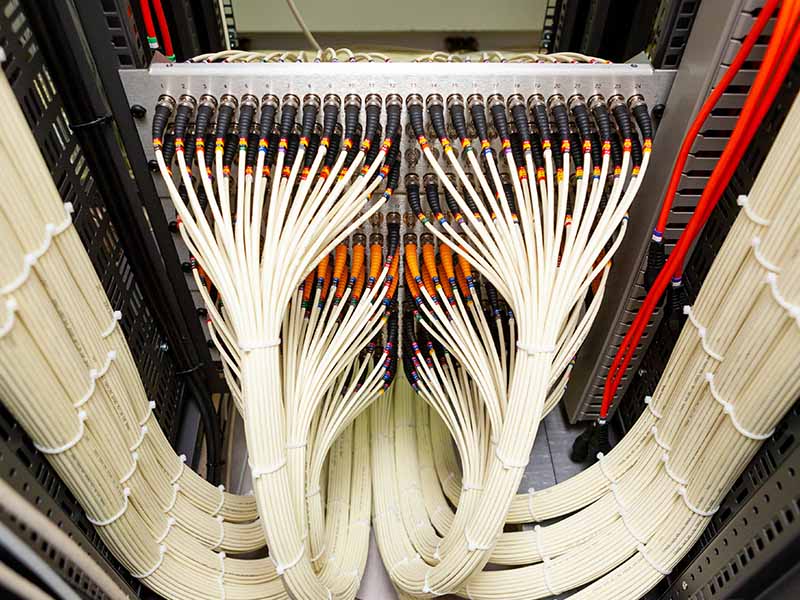
With all that said, as a consumer, you’ll have two options for bandwidth, Dedicated and Shared. Many companies in Tanzania advertise Shared Internet. In this option, the internet users in the area share the amount of data transfer i.e. Bandwidth.
For instance, you’ll notice the phrase “get up to 10Mbps per second”. The words “up to” imply that the amount advertised is the most that you’ll get.
Once you start using the internet, the speeds received might be even lower. Especially if there are many heavy internet users in the area online at the same time.
Many internet companies prefer shared bandwidth as it lowers their costs for them. Support is not prioritized for any single person in this option. Also, the consumers share the cost of the internet backbone that the Internet Service Provider purchases.
Dedicated Bandwidth is different. In fact, it’s the complete opposite. With this option, you get the entire bandwidth all to yourself. The connection will always run at the advertised speed. If it’s 10Mbps, you’ll get 10Mbps.
Most of the time ISPs tend to sell dedicated bandwidth as part of a business service. This is because it tends to be more expensive than the shared bandwidth.
As a business, you should always look for the best internet solutions provider. They are the ones that offer dedicated bandwidth that ensures faster connections and higher priority support.
Uptime is the availability or responsiveness of a web hosting service. This is a critical focal point for an internet service provider. It is the amount of time that a network connection is available, functional, and usable.
Most ISPs offer their users a guaranteed uptime of 99.5%, which is quite good. When looking for the best internet provider in Tanzania, check their internet uptime. It should be close to 100% in your local area.
Besides, you’re looking for the best, aren’t you? Achieving a high level of reliance on a hosting company requires dedication. In order to provide the fastest internet solutions in Tanzania, the company would need to go the extra mile. Heavy investment in technology, expertise, and good infrastructure is a must.
This is a unique numerical label assigned to each computer connected to a network. The Internet service provider assigns the IP address to all its subscribed users.
An IP address serves two purposes: location addressing and network interface identification. Your IP address lets you communicate with other devices over a network. It is characterized by a string of numbers separated by full stops.
Devices that share a specific local network also share a common IP address. You also need to know that there are two types of IP addresses; A static IP address and a dynamic IP address.
A static IP address is an address that is permanently assigned to your device by your ISP. It doesn’t change even after rebooting your device. Most Internet Service Providers provide these addresses by request. In fact, you need to pay an additional fee to have a static IP.
A static IP address is best suited for businesses or companies offering dedicated services such as mail, FTP, and web servers.
With that said, residential users could also get one, but it can be expensive. On top of that, you need to have some technical knowledge to set it up.
On the other hand, we have Dynamic IP addresses. These types of IP addresses change from time to time. Devices will not have the same IP all the time when connecting to a network. Many Internet Service Provider companies use this as it’s more cost-effective.
A Dynamic IP address is also better for home users. No setup is required and no extra fee is charged to access the IP address.
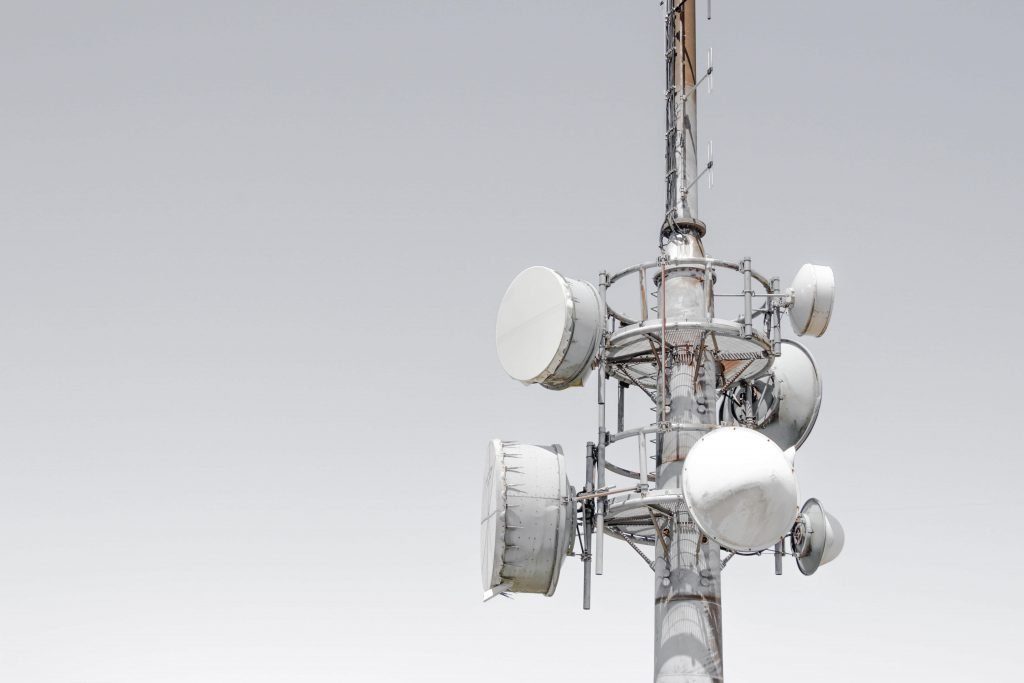
This is an “umbrella” or “catch-all” term for a fast Internet connection. It refers to any internet connection that is faster than dial-up. Satellite, DSL, fiber optic service (FiOS), and cable fall into this category.
Microwave Technology is commonly used in broadband. It’s a line-of-sight wireless communication technology.
It provides a fast-speed wireless connection by utilizing high-frequency radio wave beams. These beams transfer data and other information such as voice and video to users.
Most broadband connections offered by ISPs to home users have an upload speed much slower than the download speed. Business-level broadband connections usually have a higher upload speed than home connections.
The internet connection types offered by Internet Service Providers in Tanzania vary in their speed (Mbps) and cost. They are:
Digital Subscriber Line (DSL) operates over traditional telephone lines. DSL delivers internet download speeds of over 25 Mbps for downloads and 1 Mbps for uploads.
It is generally the cheapest type of broadband internet for your home.
DSL has two types, Asymmetric DSL (ADSL) and Symmetric DSL (SDSL). ADSL offers faster download speeds than upload speeds and is cheaper. SDLS provides equally balanced upload and download speeds.
DSL is based on distance. Your internet strength increases as you get closer to the service provider. It also decreases when you’re further away. Aside from this drawback, it’s a recommended choice for home internet users.
Broadband, as mentioned earlier, is an all-inclusive term for all fast internet connections. Most broadband connections offered by ISPs to home users are asymmetric. They have an upload speed much slower than the download speed.
Subscribers get access to satellite internet using satellite service. The internet feed is beamed to users’ installed satellite dishes. Satellite internet is generally slower than DSL and fiber optic internet.
Its speed lies below 20 Mbps for downloads and 3 Mbps for uploads. Satellite internet has the widest availability compared to other internet options. It is available regardless of where you are.
It’s for this reason that it’s more common in rural areas where DSL and fiber optic internet are yet to reach. Satellite broadband is expensive compared to DSL and fiber optic internet. More so when considering its speed levels.
Fiber optic internet service is one of the most recent and enhanced connection types. The internet operates over an optic network using light. Fiber optic lines are made of pure glass that is thin as a strand of hair.
The technology used in fiber optic lines allows it to provide the fastest internet in Tanzania. The download speeds reach over 500 Mbps in some places and over 35 Mbps in uploads.
Internet speeds are still improving rapidly. This super-fast internet option may be unavailable to some people in remote areas. This is because it requires the user to be in an area that has fiber optic cables installed.
Your needs as an internet user are unique to you. The ability to provide these standards varies from one ISP to the other.
Before you choose an Internet Service Provider, you need to make sure that it meets most of your needs. It’s not easy selecting an Internet Service Provider, but you can use these factors to choose the best internet service provider in Tanzania.
You need to be sure that the broadband you want is available in your home area.
If you are from a busy city or town, you will most likely have access to all the available internet forms. Even so, internet options like fiber optics may still be limited to certain areas.
This is because many ISPs are yet to roll it out away from the city center and its environs. To be sure of the internet forms at your disposal, you can contact and enquire from different Internet Service Providers.
Are you looking for internet services for business or residential internet services? ISPs have distinguished packages for business users and residential users.
As a business, you’re going to need an internet option that offers high upload and download speeds. Fiber optic or broadband can meet these criteria.
Cheaper internet packages are best for home use (as long as there are no heavy users). They work great as they offer reasonable download speeds and good uptime.
Your connection will get slower if it has a low bandwidth and many people connect to it. You should consider the number of people in your household using the internet.
For a household with one user, a monthly unlimited internet package should suffice. As long as there are no heavy users.
On the other hand, a larger household would enjoy a fiber optic internet package. A broadband with up to 17 Mbps may also be able to cater to a huge household. If it’s only you, a low-cost broadband package would cover your internet needs.
When choosing an Internet Service Provider, find out whether their fast internet speed applies to downloading or uploading. Keep in mind that the different providers have different rates.
Feedback from different users can help determine the best internet service provider in Tanzania. Different users can help you know the reliability, speed as well as quality of the network. You need to know that the advertised speeds that ISPs put up might not be exactly what you get.
You need to read the fine print. For instance, if an ISP adds “up to” before the speed, there is a meaning to it. The meaning is you might get internet speeds that fast, but it’ll most likely be lower than indicated. Always ask whether the internet you receive is a dedicated or shared option. A shared internet package will most likely not provide you with fast internet speeds.
You’re going to have to part with your money if you want fast internet. It’s hard to find cheap internet options that offer fast speeds and reliable uptime.
You also need to note that some “unlimited packages” are not actually unlimited. Many Internet Service Providers tend to place data caps on the packages. This means that you get fast internet until the cap is exceeded, after which the speed is throttled.
Check the fine print at all times as this is where the details on data caps are normally placed.
ISPs throw in some enticing deals and special features that will catch your attention. These add-ons generally make the purchase worthwhile. The extras offered could be free installation or free internet security software. Before jumping in, find out whether the free offer is, in fact, beneficial to you.
As a business, you need to consider the customer support offered by the ISP. You don’t want any downtime especially if crucial processes rely on the internet. Time down becomes money lost!
The best ISP will have 24/7 support backed up by 1 on 1 assistance if ever the need arises. They should also have on-site technicians available/on standby. The availability of phone or live assistance is also a plus.
The process of finding the best internet service provider in Tanzania may seem tedious, but it’s worth the time and energy. Remember, you can always seek the help of an expert, even the Internet Service Provider itself, to help you make the most out of this search.
Once you find the ideal Internet Service Provider, you can enjoy all that comes with an affordable, super-fast internet connection. quick downloads, steady streaming, and smooth video calls!